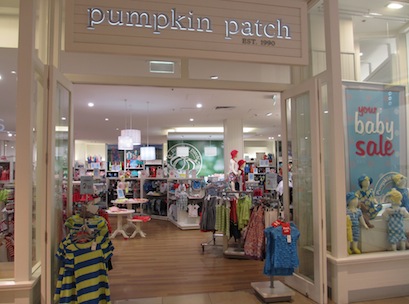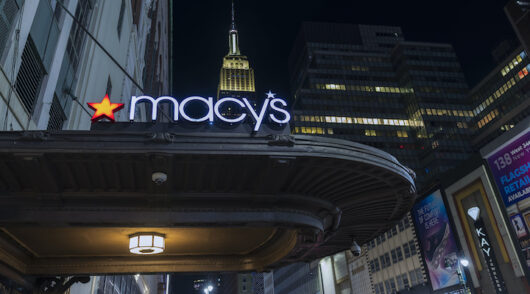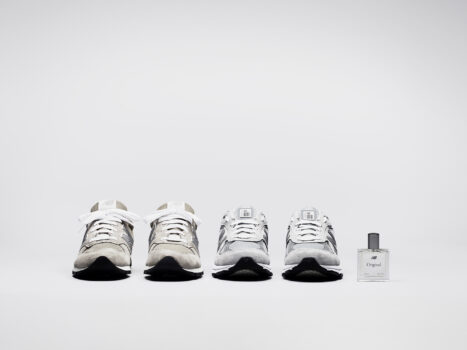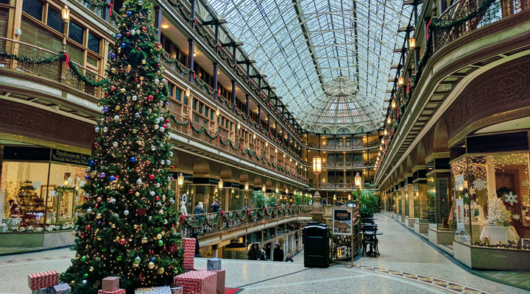 Catch Group owners Gaby and Hezi Leibovich are set to pull Pumpkin Patch from the retail graveyard, with the company announcing its acquisition of the insolvent childrenswear brand for an undisclosed sum.
Catch Group owners Gaby and Hezi Leibovich are set to pull Pumpkin Patch from the retail graveyard, with the company announcing its acquisition of the insolvent childrenswear brand for an undisclosed sum.
The pure-play retailer has acquired the Pumpkin Patch brand and associated intellectual property, including database, trademarks and product designs and will relaunch the company with an online only offering in the coming months.
Catch Group CEO Nati Harpaz is weary of the conditions that brought down Pumpkin Patch’s previous owners, outlining plans to run the brand on a “lean” operational model that takes advantage of lower overheads.
“We are going to be attractive with our pricing to be in the same line with what the H&Ms are offering, but we want to offer some point of differentiation around design,” Harpaz told Inside Retail.
Pumpkin Patch is being fully integrated into Catch Group’s operational model, with orders from distinct Australian and New Zealand e-commerce platforms to be fulfilled from the group’s Melbourne distribution centre.
Subsequent cost savings will be employed alongside a re-focused range that will seek to take Pumpkin Patch’s traditional proposition back to customers. A new design team is being brought on to leverage the proprietary range in an offer targeted at 0-8 year olds.
“Pumpkin Patch didn’t fail because of a sales issue,” Harpaz said. “They went up to 14 [year-olds] because they wanted to be everything for everyone. You can’t really succeed when you do that.”
While Catch have no official plans to re-open any of Pumpkin Patch’s 160 physical stores, which closed late last year after receivers failed to find a buyer for the business, Harpaz left the door open to concessions and a consolidated store footprint in key locations.
“Retail needs bricks and mortar, but you have to have a sophisticated supply chain, very good warehousing and an online offering that underpins 15 or 20 flagship stores,” Harpaz explained.
“It’s not about having 150 stores, it’s about having stores in key locations and destination shopping.”
Queensland University of Technology associate professor Gary Mortimer conceded that Catch Group weren’t the first to mind as a prospective buyer for Pumpkin Patch, but said that taking the brand online at a lower price point could bear fruit.
“Catch of the Day understands the value of a good brand and that shoppers align value to brands, and there’s an opportunity to get a good brand into the market at a lower price here,” Mortimer said.
The headline challenge for Catch will be getting customers who have left for international retailers or mothers who aren’t typically profiled as online shoppers into the mix, Mortimer contended.
Catch plans to leverage Pumpkin Patch’s customer database to reach out to customers and educate them on the new offer, with Harpaz confident in the lower price-point and refocused range.
Pumpkin Patch had been trading online under the stewardship of receivers KordaMentha until January to clear excess stock, receiver Neal Jackson said that they were happy with the outcome.
“It’s a good outcome, the brand will survive in the market with an owner that sounds committed to reinvigorating it,” Jackson said.
Catch Group’s war plans
Moving into apparel design and manufacturing is a big step for the group (owners of Catch of the Day, Scoopon, Mumgo and Grocery Run), which even Harpaz admits comes with a “steep learning curve” – but Pumpkin Patch won’t be its last acquisition.
The pure-play retailer is looking to build scale with vertically integrated brands as part of a broader strategy to combat the prospective entry of Amazon Down Under.
Harpaz, who has set himself a lofty $1 billion per year sales target by 2020 ($300 million in 2016), said fronting up for proprietary brands is one arm of a four part strategy to tackle the American e-commerce giant.
“I’m interested in brands that are vertically integrated and have their own brands,” Harpaz explained. “Pumpkin Patch is a good example, its Pumpkin Patch goods I’m buying.”
Harpaz wouldn’t comment on any other possible acquisitions or what else is in its Amazon war chest, but late last year on the opening of Catch of the Day’s first pop-up in Melbourne Harpaz indicated that increasing Catch’s brand presence was a hedge against Amazon.
Premier Investments chairman Solomon Lew is also backing propriety brands as an anti-Amazon strategy, dismissing a recent report by Credit Suisse earlier this week that indicated Premier and a host of other retailers could lose a substantial chunk of their earnings within 5 years of an Amazon entry.
Nati Harpaz is the chairman of Octomedia, the parent company of Inside Retail.





